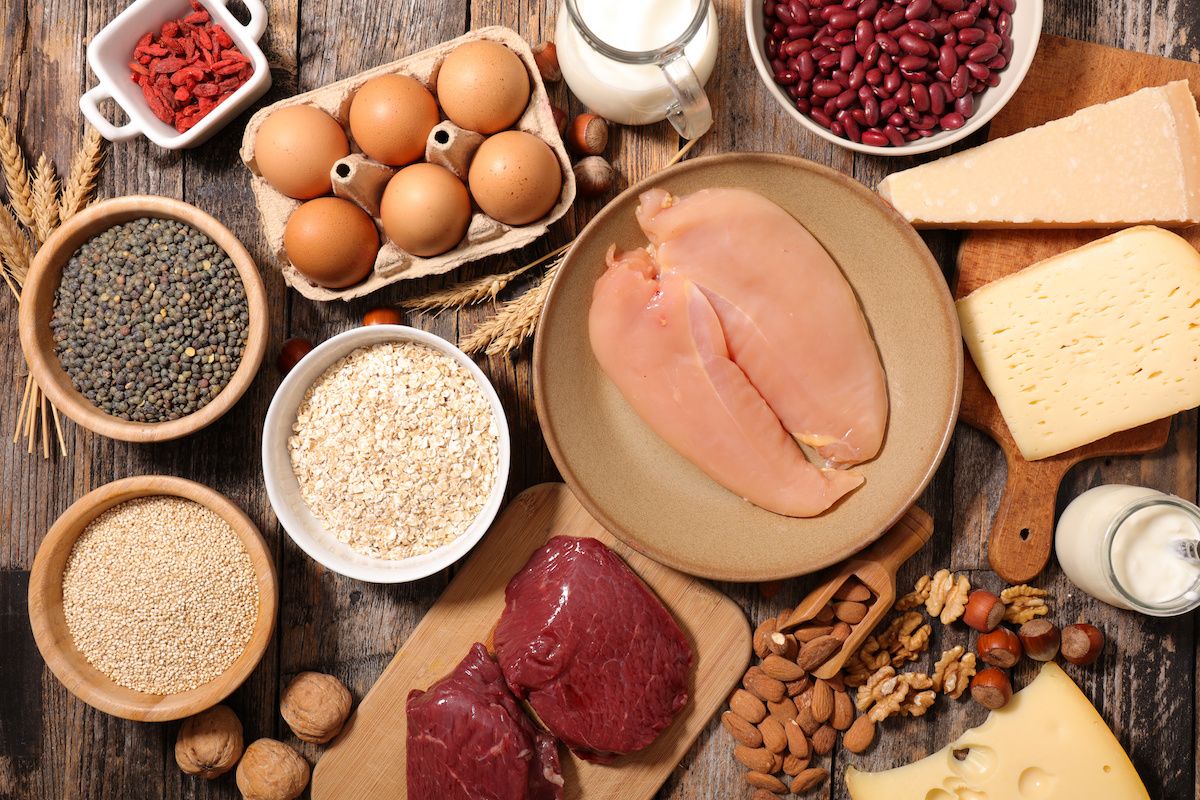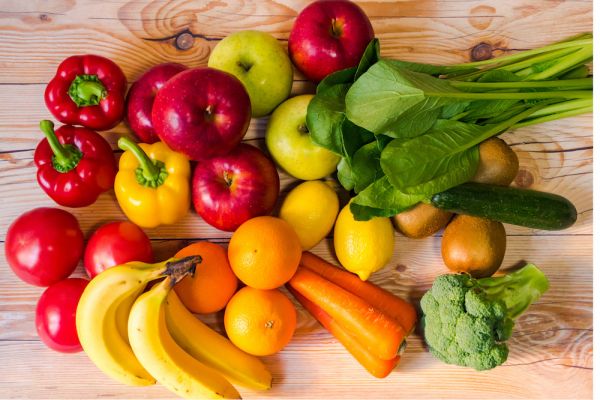Protein is an essential nutrient in food that helps maintain lean body mass and supports your body’s recovery during and after cancer treatment. Protein is the building block for muscles, bones, cartilage, skin, enzymes and many other components of the body. It is found in foods such as poultry, meat, fish, eggs, dairy, beans, nuts, and tofu and other soy products. These protein foods provide a variety of nutrients, such as:
- B vitamins (including niacin, thiamin, riboflavin and B6), which help the body release energy, aid in the function of the nervous system and the formation of blood cells, and help build tissues
- Iron, which carries oxygen to the blood
- Zinc, which helps the immune system function
- Magnesium, which helps build bones and release energy from muscles
Your individual protein needs depend on your body size and activity level, as well as certain disease factors. While some people may need to limit protein intake in specific instances, most of the time your protein needs increase during cancer and treatment. In general, include a protein-rich food with most meals and snacks to help meet your nutrition needs.
Try to choose options such as seafood, dairy and plant-based sources of protein in place of some red or processed meats, which have been shown to increase the risk of colorectal cancer. The American Institute for Cancer Research recommends avoiding processed meats, such as bacon, hot dogs and lunch meats, and limiting beef, pork, lamb and other red meats to three portions — or about 12-18 ounces total — per week.
There are many different ways to add protein foods to meals. For example, add leftover cooked meats or poultry to soups, casseroles, salads and omelets. Here are some additional options for incorporating more protein foods into meals and snacks:
- Add cottage cheese or ricotta cheese to casseroles, noodles or a bowl of fruit.
- Make a Greek yogurt parfait or smoothie.
- Use milk in place of water when cooking cereal and cream soups.
Note: Cow’s milk has more protein than most nut- or plant-based milks, such as almond, cashew, rice or coconut milk. For protein content comparable to cow’s milk, try lactose-free milk, soy milk or kefir. - Have hard-cooked eggs readily available in the refrigerator for a snack, to make egg salad or to add to salads, casseroles, soups or vegetables.
- Add cheese to toast, crackers, sandwiches, baked potatoes, vegetables, soups and pasta.
- Aim to eat two servings of a variety of seafoods per week. Find out about the benefits of seafood and pick up some ideas and tips for including more seafood in your diet.
- Sprinkle nuts and seeds on cereals, fruit, salads, vegetables and pasta.
- Spread peanut butter or other nut butters on toast, bread, English muffins, crackers or sliced fruits, or blend in a milkshake.
- Add beans and peas to salads, soups, casseroles and vegetable dishes.
Nutrition Tips for Cancer Patients and Survivors
Our board-certified dietitians at Roswell Park are part of your healthcare team and can help you make the best food choices during treatment or recovery.
Learn MoreWhat About Protein Supplements?
Sometimes you may develop a dislike for certain foods, including protein foods, or you may need some extra help to meet your daily protein goals. If that happens, drinking protein-rich liquid nutritional supplements may be beneficial. You can choose from a variety of pre-made protein shakes, including Boost, Ensure and Carnation Instant Breakfast. As a starting point, look for supplements that contain 10 or more grams of protein per serving. If portion sizes of shakes are overwhelming to you, break one large serving into two or three small servings to drink between meals.
You can also make your own shakes with a protein powder. Whey protein powder is typically well-tolerated and used efficiently by your body. Check the product’s nutrition label for the amount of protein per serving. In addition to shakes, you can add whey protein powder to a variety of other foods, such as oatmeal, cream soups, muffins, pancakes or mashed potatoes.
For more information about your individual protein needs, talk with your Roswell Park registered dietitian.
Next month's nutrition article will focus on ways to boost your calorie intake to maintain a healthy weight during cancer treatment.


